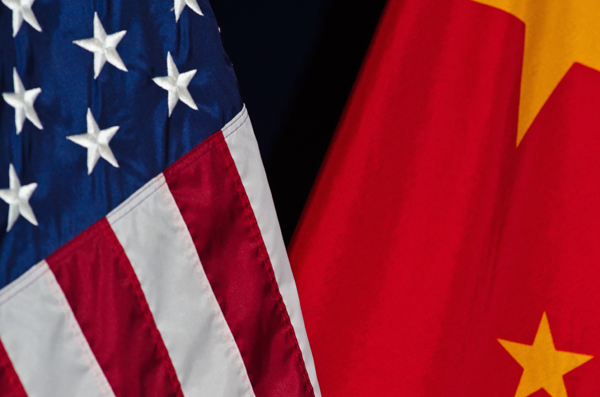
Photo / USDA
The American Chamber of Commerce in China hosted a webinar on ‘Avoiding and Winning China Disputes’ recently featuring Dan Harris, an attorney with Harris and Moure and the creator of the China Law Blog. The webinar was aimed at providing tips for Western businesses in the Chinese market or considering launching operations there on how to avoid legal battles in the country.
Tip 1: Know Thy Friend, Know Thy Enemy
When finding a Chinese partner, you must engage in a process of due diligence, said Harris, wherein you have to ensure that the company you want to do business with actually exists and has a good reputation in the market and that they actually work in the field in question. When finding a place to locate your business, don’t always focus on cost, you need to also consider logistics, utilities, rent, and, at least to some extent, potential legal issues, he added.
Tip 2: Sign a Contract Written in a Single Language
Harris said that despite many conceiving of the Chinese market as “the Wild West” and written contracts not technically being a legal requirement in the country, it is important to sign a contract when dealing with your partners in China, as it serves as a reference for a judge in any lawsuit. Any MOU signed in advance of a contract will often be interpreted as a contract by the Chinese legal system, he added. As well as the right to sue, which many see as the central purpose of contracts in the US, Harris stated that having a contract has the benefit of clarifying potential misunderstandings between the two parties, as even if you find out that the company can’t deliver at the pace that you thought they could, you can manage expectations with your clients at an earlier point. He did point to the fact, however, that the threat of litigation suggested by a contract can be a strong motivation for a Chinese company to deliver on its promises, even if you don’t actually intend to sue.
He specified that the official contract should be drafted in only one language, and that this should be the language in which you expect any litigation to take place. He added that anyone doing business in China should always ensure that the Chinese company does not sneak in language to a Chinese contract, which might lead to the creation of two contracts in two languages both asserting themselves to be the official version, as this can create ambiguity, which will only play against you in any potential litigation.
Tip 3: Consider Having your Case Heard in China
He stated that although many US attorneys will often try to push to get cases heard in the US, much of the time, unless the company in question has assets in the US, it is more beneficial to have the case tried in China, as this is the only way you can enforce IP protection provisions and be awarded damages.
He stated that many judges in China are willing to enforce liquidated damages provisions in contracts, and have the power to freeze assets. Harris recommended including these kinds of provisions in one’s contract, as Chinese companies will be encouraged to “fly right” given the very real aspect of the threat. Even if it means lesser damages in China, it’s preferable if you can actually get them enforced, he added. The courts in China will more than likely be willing to award damages if they feel they are reasonable, according to Harris, and you may even be able to negotiate for more.
Harris stated, however, that although there are many studies suggesting that enforcement is getting better in recent years, the statistics are slightly skewed by some judges, who don’t hear cases for years and years. He also stated that the clamp down on money leaving the country over recent months has led to less success for foreign firms suing in China.
Harris said that in proceedings launched under the China International Economic and Trade Commission, it is possible to specify that proceedings be undertaken in English and you can also come to an agreement on at least one non-Chinese arbitrator presiding over the arbitration.
He also stated that the Hague Service of Process, a new service through which you can serve a defendant through the Ministry of Justice, had been relatively reliable until the last six months, where there has been less willingness to serve as many complaints, likely due also to the unwillingness to see money leaving the country.
He cited comments by a lawyer working in China, suggesting that, counterintuitively, foreign companies have tended to fare better in litigation than Chinese companies in China –may be because Chinese courts are eager to prove themselves in Western eyes.
Tip 4: Get Familiar with Differences between Chinese and US Law and Legal System
He pointed to some differences between the legal systems in China and the US, stating that US courts tend to stick very much to the letter of the law, whereas Chinese judges tend to focus more on perceived fairness, regardless of the technical correctness of one’s argument. He also suggested that you prepare for litigation from the start, given that Chinese courts do not have discovery.
In regard to trademark legislation, he said that one should remember that China is a first to file country, not a first to use country like the US.
Oftentimes your chances of success in any eventual litigation will depend on whether you are up against a state-owned enterprise or a private company and whether the case is being heard in a first tier city or a fourth or fifth tier city where the Chinese company will be more likely to be able use their leverage, said Harris.
Harris also urged caution in terms of waging a PR war in China, lest you unintentionally make things worse for yourself by riling a Chinese judge.
Tip 5: Assert Intellectual Property Rights in Contract
In terms of manufacturing, this means you must ensure that the contract stipulates your ownership over any molds used in production and does not grant rights over these to the OEM. He also suggests putting provisions in the contract that prevent the company from approaching your clients directly or supplying your competitors. He stated that intellectual property agreements should be registered with a state agency and that this will play in your favor in terms of enforcement, just one of many things you can do without spending a lot of money.
Harris said that the problem he comes up against most commonly is when companies have already given up their rights by accident, so, he stressed, it’s key that you protect yourself from the start, and seek the right counsel for yourself if you’re not familiar with the area.
Although China may not be at the level of the US or Europe in terms of copyright protection, it is usually willing to enforce measures if it is stipulated in the contract and that the system is not as weak as people think, he stated.
You can listen to this webinar and the other webinars in this series on the AmCham Shanghai SME Center website.
 |
|
| Author: |
Conor Stuart |
| Current Post: |
Senior Editor, IP Observer |
| Education: |
MA Taiwanese Literature, National Taiwan University
BA Chinese and Spanish, Leeds University, UK |
| Experience: |
Translator/Editor, Want China Times
Editor, Erenlai Magazine |
|
|
|
| Facebook |
|
Follow the IP Observer on our FB Page |
|
|
|
|
|
|
|



